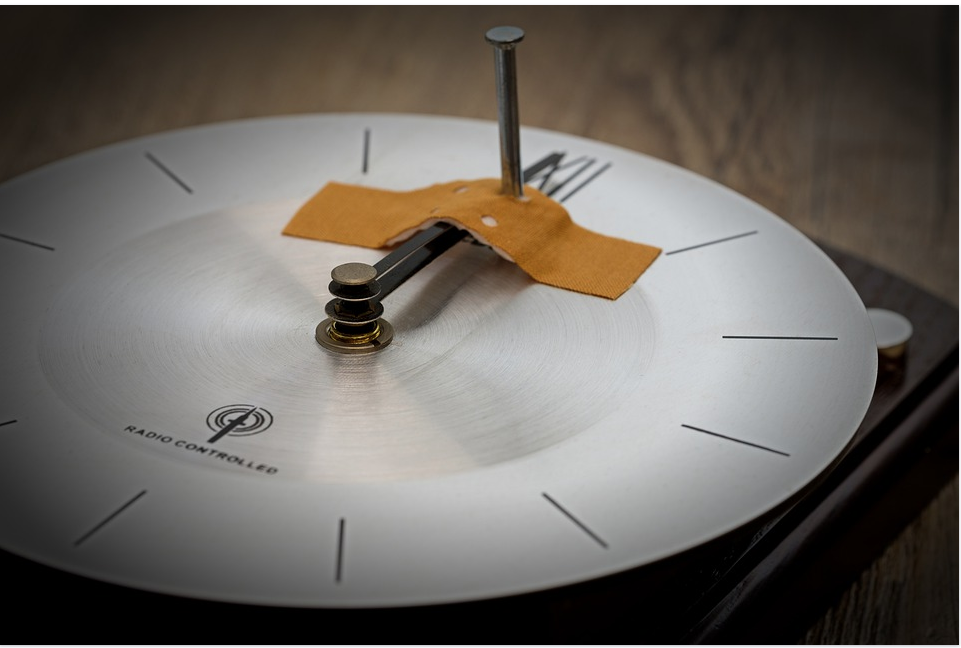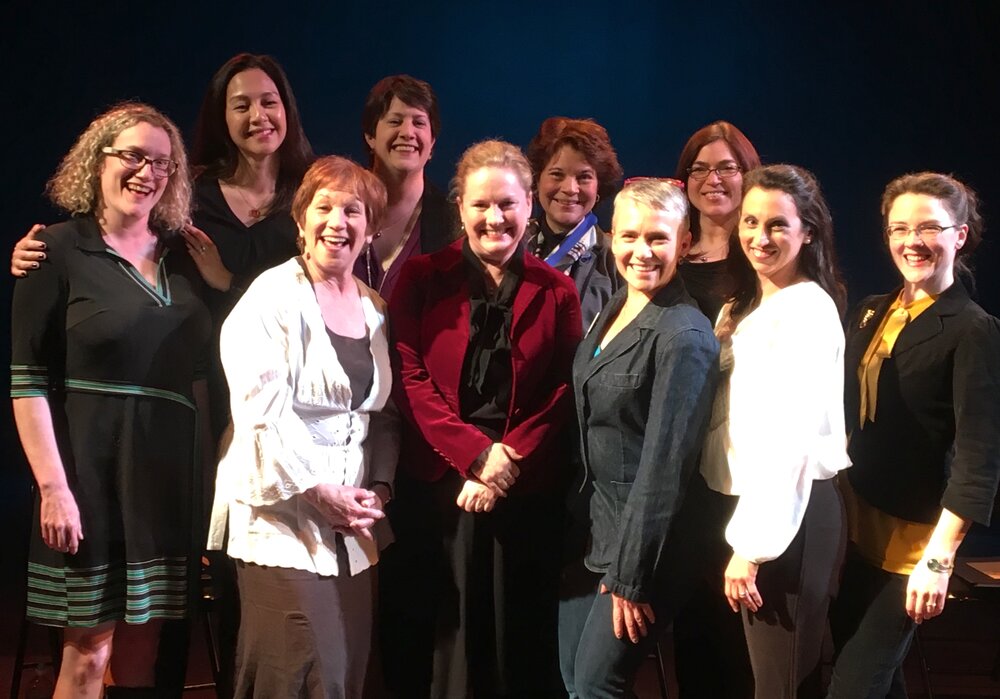Back Before, I'd walk three to five miles a day (in good weather) between clients and meetings in Manhattan. I haven't been putting quite that much mileage on my sneakers lately, but I've been doing a circuit through my Brooklyn neighborhood. I'm almost getting used to wearing a mask whenever I leave the house. And outside it's beautiful these days: spring has sprung and I am grateful to see these signs of hope..
Others in my house have found new and creative ways to exercise their bodies and quiet their minds. Everyone I know, it seems, has a favorite online workout. There's even renewed interest in the soap treadmill craze that swept China last spring. Meanwhile, The New York Times writes that some of our new routines may annoy neighbors. People find workarounds, most notably by exercising something else--patience. Because we all understand that New Yorkers gotta move!
As we physically exert ourselves, we're reminded of the importance of breathing, of the power of the single breath. These days I feel that we're existing in a time of cosmic breath-holding. That space of waiting between inhalation and exhalation. As a singer, it echos what I feel when the conductor raises her baton for the upbeat, right before we release our song. In that moment time stands still.
But once time starts up again, once we collectively exhale, our thinking--and the way forward--will become clearer. We'll be actively engaged with the world around us. Whether it's diving back in the pool or walking miles and miles down Broadway, we'll be back and we'll be doing.
In the meantime, don't hold your breath!
What puzzles reveal
Puzzles. We've all been doing them lately, right? And not just to pass the time: puzzles are challenges that we enjoy. But they require patience, Which is probably why it's been awhile since I've spent much time poring over small, oddly-shaped pieces of cardboard spread out on a table. And re-engaging with them has reminded me of that notorious puzzle-related injury, "puzzle neck." In spite of this, they've given me hours of fun, and many insights:
Often you're looking for a piece with a recognizable attribute (say, the lowest tree branch), and you inevitably realize it has been abstracted into several jigsawed shapes. So you have to find it by less obvious means.
Sometimes you have that aha! moment when you rotate a piece upside down and it fits. Your previous perspective defined and limited your ability to see.
After working on a puzzle for an hour or two, you can magically find (in the random pile on the table) the missing piece for that part of the puzzle you're no longer obsessing over.
When we work on puzzles, our preconceptions and frames of reference are upended. A good lesson for this difficult time. We need to look for creative solutions, and be careful we don't overlook something because it doesn't look they way we think it should.
Video Tips You Can Use!
Make sure you have a background that looks work-appropriate. If you must take your video chats in your bedroom, make sure we can't see your bed! The camera defines the space we see, so find a different angle. Use Photo Booth, Camera, or a similar app to see what your camera sees--before you log on!
Dress like you're going to the actual meeting in your "business casual" attire. Comb your hair. Put on makeup, if you normally wear it. Not only will you look better on camera, you'll feel more ready to get to work.
Prepare and organize. Time flies even faster on virtual meetings and webinars. Attention spans are shorter, too. So organization is key if you want to get your message across.
I'll be offering more tips in upcoming workshops.
Be sure to visit my website to see what I'll be covering and when.
March 2020
Tranquility from an earlier time
Wash your hands. Then call me!
Life has been changing rapidly this past week. Many of you have joined me as newly-minted members of the Work From Home club. Welcome!
You've probably already found out that the upside (short commutes, savings on dry cleaning bills, wearing comfy slippers) can be outweighed by the downside.
So many adjustments, so many questions--about everything, especially communication: how do I present a professional demeanor when working from home? How can I communicate via video chat in a way that is confident, calm, and clear when the chaotic world threatens to intrude? How do I maintain focus so I can really connect?
Luckily for you, I have answers. While every situation is different--from resizing a presentation for hundreds to reshaping that high-stakes meeting--many of the same guidelines apply:
Prepare--like you never have before. Especially if your communication is of the conversational rather than presentational variety (meetings, rather than webinars).The rhythmic difference between being in the room to communicating through a device (phone, computer) means you can't "um, hmm, you know, like..." your way through things while you search for an answer.
Practice your bridge phrases--IF you do need time to think, figure out a few key phrases that work for you (DO NOT rely solely on "that's an interesting question"). Try "I am glad you brought that up,"' or "we've been working on something similar" that give you time to think. Nail them down by practicing them in the shower, or while washing your hands. For the queries that really stump you, the classic, "let me give that some thought and get back to you" never goes out of style.
Relax--but not too much! Even if you do most of your work on your couch or bed, find a table/chair combo that makes you sit up straight so you can speak with posture that conveys presence(even if you're in sweats from the waist downI).
It's a time of transition for us all. You may feel working on your onscreen/over-the-phone authentic leadership presence is just one more thing to do. But it's a fairly easy way to do some professional development (and self-improvement) that will help you rise to the top once we all get back into our offices.
So call or email me to book a session for you or your team. And I'm available if you need any speech, presentation, or talking points written, revised, or edited. If you want the reassurance of an expert to review your content, get in touch.
I'll be here. But wash your hands first!
January 2020
|
December 2019

It's that time of year
I hope this newsletter finds all my readers in the holiday spirit! I know everyone's busy this time of year, so I'll keep it short, but I wanted to share with you some tips for getting through the upcoming cycle of rush-celebrate-repeat:
If you're making a toast, don't panic: Tips for a holiday toast are here . But if looking up that link is too much, it boils down to this: Prepare. Keep it short. And remember: it's not about you!
Get the most out of every party--even neighborhood get-togethers (you never know where you'll make that next great connection). Bring your cards. Have your "cocktail party speech" ready. Don't have one? Get. one. Here's how...
And remember to pace yourself: alternate your festive cocktails/wine with water. Especially if you're toasting or speaking. Alcohol not only acts as a disinhibitor, it dehydrates you. Which dries out your throat, putting unnecessary stress on your voice during its most vulnerable season.
November 2019
 Autumn in New York
Autumn in New York
The days are getting shorter and there is finally a bit of a bite in the morning air. There's an energy in New York City that seems to have blown in with the seasonal chill. Everyone one has picked up their pace--not only the 50,000+ Marathoners who ran on Sunday. Walkers are briskly traversing the avenues in leather jackets and chunky sweaters. Greenmarket shoppers are scooping up the bounty of fall's harvest. The rhythm of life, never slow here, seems to have sped up a notch, as if it, too, has to move faster to stay warm.
My work this time of year thus becomes more challenging. When I work with clients, we focus on centeredness. We need to be still, in order to find and manifest authentic presence. To hold onto that, and use it whenever we speak or present, we must quiet the voice of our inner critic and maintain relaxed energy. In a conference room high above the city streets that's not so hard to do. But to hold onto that feeling when descending to those streets, walking elbow to elbow with throngs of New Yorkers and tourists--that’s the ultimate challenge!
A client recently asked me if I still got nervous when I spoke. I was honest, and said yes, especially in high stakes situations, or if I sense a challenge in the air. Then I need to lean on my technique a bit harder. Which got me thinking...maybe this year I'll apply that same concept at the start of the Season of Pre-Holiday frenzy. I'll more consciously rely on my technique, to guard against slip ups caused by a sudden surge of nerves. But that makes sense. It's kind of like doubling up on Vitamin C this time of year--or getting a flu shot!
October 2019
 Recharged and Reinforced
Recharged and Reinforced
I took some time off from coaching clients and writing plays to spend a few days with family in Maine in September. It's always good to take a break, to have a different daily rhythm, to focus on other goals. When I returned, the rest of the month flew by--weekly travel to clients in DC, guest lecturing at American University, workshop-leading, and private coaching. I love being so productive, but my comings-and-goings left no time for newsletter inspiration!
I was delighted, then, to read my own advice in the Harvard Business Review! No, I'm not quoted there, but I am sure this article by Carmine Gallo will sound quite familiar to my clients: "The best speakers make presentations look effortless precisely because they put so much effort into perfecting their delivery." Glad he backs me up on this! Practice is essential. And really great speakers know it. They just don't advertise the fact. Rehearsal is repetition, and it's not exciting or sexy, but it leads to presentations that can catapult you to even higher levels of success (see Jobs, Steve).
Gallo writes about major presentations, like TED talks or industry-wide speeches, but the truth is, you need to practice for any speech event--even (or especially) those tough one-on-ones with your boss or a difficult team member. Not the 200 times Jill Bolte Taylor rehearsed her brilliant TED talk , but enough to internalize your message so you don't get tripped up in times of stress.
Want to triumph in your next presentation or sail through any speaking situation with confidence? Listen to the experts. And practice.
August 2019
Beware the novelty act
Now that the 2020 presidential campaign is off and running I'm being asked: What do I think of Bernie's yelling?Warren's wonky performance? Doesn't Biden just look like a leader? I'm in the business of leadership communication, and I appreciate the part debates play in helping voters make up their minds. But I'm all too aware of the fact that performance is not governance. The horse race that engrosses us now is barely connected to actual policies for creating a more perfect union.
We all remember candidates who captivated us with terrific performances (who can forget Sarah Palin?) until we found out they had very little substance underneath their charisma. Which is why I fear Marianne Williamson's candidacy. We need to guard against being caught up in her performance as truth-telling outsider. I have heard many people say she made some good points, showed herself to be worthy, etc. I must admit I watched her with fascination, calculating the amount of effort she must have put into her two turns on the debate stage. The fact is, any speaker who works at it can hone a message and perfect a delivery that casts her in the role of savior. It's even easier if she adds a touch of magic and mysticism.
An ethical speaker shares insights and ideas to solve problems and create new opportunities, but the unethical speaker intentionally inflates her own importance by playing to the audience. Williamson does that when she exploits our greatest hopes and deepest fears ("if you think any of this wonkiness is going to deal with this dark psychic force of the collectivized hatred... then I'm afraid that the Democrats are going to see some very dark days.").
It's true that successful candidates connect to the hearts of voters as well as their minds. One of the best examinations of this subject is Drew Westen's 2007 book,The Political Brain. Many campaigns I have worked with use Westen's insights responsibly, to good effect. But what of those who seize upon the power of emotional connection and use it as a substitute for critical thought? Where are they leading us? We need to ask ourselves if any fresh-voiced, self-described radical renegade is being at all truthful when she promises to challenge Washington "with courageous love." If a candidate has no actual experience doing anything remotely like what she promises, how can we, as voters, believe her? We need to shake off this enchantment and demand real answers to serious questions.
I know what power there is in a performance that makes you feel. But politics isn't theatre. Or entertainment. And the stakes are too high for us to be seduced by another novel performer.
June 2019
When to call in the pros
I recently had an unexpected client: a well-regarded attorney who does a lot of speaking. He's not a person who normally needs help with any sort of speech. And yet...
He'd been chosen to be the speaker for a community celebration in a large, impressive venue.
People he'd known for years would be there, and he wanted to deliver a message that was smart, heartfelt, and with a touch of his trademark humor. It was very different from his usual type of speech!
He spent a couple of weeks kicking ideas around, trying them out on friends and family. Somewhere along the way he realized he wasn't getting the job done. So he picked up the phone and called me.
We tweaked and cut, rethought structure and word choice. He sent me rewrites. We perfected the 12-minute speech in a week! He vowed to practice more than the seven times I recommended. Afterward, he told me it was quite a success. And he even enjoyed himself!
Circumstances forced him to look beyond his usual circle. They meant well, but they didn't have the expertise. It's always good to hear a successful professional say that no matter how much experience you have, often there's something--an unfamiliar theme, unusual occasion, or lack of prep time--that makes you realize you're the one who needs help from an expert!
It's a humbling thing to admit. And can cause some consternation, maybe a bit of panic. But don't worry: I got this!
May 2019
Time disruptions
It looks like we'll just have to wait on the time-reversal technology. In the meantime, I could really use some time-stopping technology. Since I moved to New York from Virginia in August, I've spent so much time going back and forth from Brooklyn to DC that I almost meet myself coming and going. So I'd like to stop the clock and have a chance to catch up! If you can relate, you might be interested in some of the strategies that have helped me make the most of the time I have.
- Get it off your plate--when someone e-mails or calls me with a quick and easy question, I don't "put a pin in it" for later, but try to respond right away. It's done and I don't have to spend time "calendaring" it. Bonus: the person on the other end is eternally grateful!
- Block it--those small things I couldn't get off my plate quickly sit in a pile of notes that grows higher and higher till it's a towering mountain of rebuke. So I schedule a block of time (30 minutes here, an hour there) to "clean up" and deal with them. Sometimes I haven't finished the task when the time is up, but at least I have a clearer idea of how much more time is needed.
- Turn off your phone--if I need to do a deep dive into a project (editing a client speech, drafting a proposal, or writing a scene for my play) I focus ONLY on the task at hand. I get in the zone. I don't let calls, Facebook posts or (especially) tweets distract me. There is always some shiny object within reach. If I ignore it I finish faster than I thought I would! And guess what? There's an app (actually several) for that!
- Prepare, prepare, prepare--I really save time in the long run when I allot sufficient prep time for speeches, presentations, or anything that requires me to synthesize information and deliver it to others. Building on a strong foundation, I can discover my thesis, put together a deck, and compose talking points much more quickly and effectively than filling in holes on the fly.
- Reward yourself--I give myself a break when I hit certain milestones: go get a cup coffee when the first draft is done; allow myself a few minutes on social media (avoiding the sites that raise my blood pressure and take me down a rabbit hole!) after I press "send;" get up and walk around after I've made those crucial edits.
You are in very likelihood doing many of these things already. But just in case you've forgotten one or two of them, I hope this is a good reminder. And when you next put them into practice, send a good thought to me bussing it to DC and Amtraking back to NYC.
Or start working on that time machine!
April 2019

The Loops of Feedback
I help my clients develop successful workplace communication skills. And usually that work is fun, positive, upbeat: people want to give exciting presentations, learn to effectively express their thoughts, demonstrate leadership through active listening. It helps them achieve their company's/team's/division's goals. But when talk turns to giving and/or receiving feedback, it's as if a cloud has suddenly passed over the sun and threatens to stay there. . . forever.
I have experienced that visceral dread. But it has taught me some interesting things, which I think will resonate with anyone who has ever found herself stuck in the Feedback Loop of Doom. As a playwright I have felt a chill during audience talkback sessions, a feeling that comes from the fear that my work will be judged and found wanting. Because often, it is. After hearing a play at an early public reading, people give all sorts of "suggestions." Many of these boil down to: "Well, that's not how I would have written this play!" Anyone who has been given such unfocused criticism partway through a project or process knows that this is not helpful. In fact, it slows down the playwright's or employee's momentum, or stops it altogether.
The best talkbacks happen within a supportive relationship, under a framework of stated rules of engagement. The audience is asked to answer the playwright's specific questions: What moment resonated with you? What overall image did the play leave you with? Which character made the strongest impression? We don't want prescriptions on how to "improve" our work, nor do we want proscriptions. Give us answers to our burning questions and trust that we'll take it from there.
A playwright, like anyone engaged with a project, wants to know what's working and what isn't. But we don’t trust those who diagnose what's wrong and how to fix it after hearing the piece only once. When audiences (or supervisors or colleagues) offer non-constructive criticism, they put barriers in our way. When they tell us how they would do it better, they undercut our confidence, initiative, creative thinking. And on the flip side, when blanket praise is given--along with a command to do it 'just like that again!"--confusion reigns.
In their excellent article "The Feedback Fallacy" in the most recent Harvard Business Review, Marcus Buckingham and Ashley Goodall explore what the latest research tells us about the best way to give feedback. When I read it I immediately recognized the strategies they advocate. Because their preferred method is very like what good talkback facilitators ask audiences to do. "We humans," Buckingham and Goodall advise, "do not do well when someone whose intentions are unclear tells us where we stand, how good we "really" are, and what we must do to fix ourselves. We excel only when people who know us and care about us tell us what they experience and what they feel, and in particular when they see something within us that really works."
I think they're on to something!

I'm back from a lovely trip to Terre-du-Haut on the îles des Saintes archipelago in Guadeloupe. Ah--a warm beach vacation! Just the antidote to my first New York winter. And it's always fun to get away: traveling gives me a chance to get out of myself, to experience new things, to see the world through a different lens.
If you live in a tourist destination, it's useful to view things from that different perspective from time to time. Tourist season never really ends in NYC and I must admit that some days I find it exasperating getting from point A to point B, wending my way through a crowd of strolling sightseers. But my recent experience of communicating haltingly in French and showing up late to grocery stores that close at noon reminded me how challenging it can be to venture outside my everyday world. Which is something I conveniently forget, until I step off the boat and arrive on foreign shores for a week or so. Then I need to get up to speed, stat!
It's also instructive to see how different people handle this transition. Many tourists I saw on our little island were doing basic Box-Ticking Travel, going where their guides or guidebooks led them. They seemed to be having a wonderful time taking pictures of themselves in these exotic surroundings, but I wondered if they were experiencing anything, or just recording future memories. Now, as readers of my newsletter know, I believe in the importance of being in the moment. Always. Even on vacation. Last time I went to the Caribbean that lesson was reinforced by a long climb up a mountain. This time I was positively luxuriating in the moment on every beach we visited in Les Saintes!
On the plane home, though, I got to thinking about how heedlessly I sometimes go through daily life. I've been in Brooklyn seven months now, so I'm getting used to my neighborhood, my routine. But New York is a pretty happenin' place; I'm not sure I could ever get too comfortable. Still, I need to remind myself to find something new to savor each day, wonderful or grotesque. I need to seek these out if I want to keep filling my creative well. If you need to top your own well off, I can think of no better advice than to live life mindfully, and with empathy for those who are new to your world. Photos are great memory jogs, but no substitute for actual experience you can feel.
Recall, re-create and connect
 Writing a speech is one thing, delivering it is quite another! Many speakers fall into the trap of not allowing enough time to do both. And you've heard the result: wooden, stiff speeches coming from experts who should be really owning their material. Here's why this happens again and again: putting together a good slide deck takes time, so does editing and revising the text. As the graphics-tweaking and word-smithing drags on, the speaker becomes distanced from the original intent of the message. So in the end, they have words on a page or screen. And that's what you hear. Words. Not a message, not the thoughts the words represent.
Writing a speech is one thing, delivering it is quite another! Many speakers fall into the trap of not allowing enough time to do both. And you've heard the result: wooden, stiff speeches coming from experts who should be really owning their material. Here's why this happens again and again: putting together a good slide deck takes time, so does editing and revising the text. As the graphics-tweaking and word-smithing drags on, the speaker becomes distanced from the original intent of the message. So in the end, they have words on a page or screen. And that's what you hear. Words. Not a message, not the thoughts the words represent.You want to avoid this kind of dull recitation, right? Many people think they can sidestep this problem if they go light on their written prep: if I don't have written words, I won't read them! But preparation is key (here are two of my favorite blogs on the subject, from September 2103, and July 2014). So don't skimp on it! Write it down. Once you've crafted the content for your message, your challenge is to connect with your audience. So you have to get off the page, out of your head, and back into your heart and your gut. You need to invest time in the process of creation and re-creation. Ask yourself why you're presenting on this topic, then recall what you felt as you began crafting your presentation. The next step is to connect that feeling to the ideas represented by the words you chose. Put those feelings and images into a mental video that you play as you deliver the speech. You'll recall what sparked your need to communicate, and your listeners will feel that you are fully invested in your message.
This is what actors do; they convey the subtext, the unspoken feelings and ideas under the words that are the essence of the message. Of course, they do it with a twist. They convey someone else's mental video! So you, as a speaker or presenter, have it that much easier. But you won't own it unless you rehearse.
The best gift of 2018!
 Being fully present is something that takes some work. And the experts are on it! It seems that research in this area is having quite an uptick lately, so we might assume that the problem of distracted living is a recent development. But many ancient disciplines--meditation, yoga, Quigong, and others--focus on cultivating mindfulness. So it's safe to say that human beings have been having trouble staying fully connected and in the moment (in a nonjudgemental, non-reactive way) for millennia. It's a relief to know that chronic inattention is not a recent development! But that is small consolation to those of us who fight daily to keep our heads in the game.
It's especially hard to focus this time of year, when we have so much on our plates: wrapping up year-end business, traveling, shopping, doing whatever it takes to make the holidays more festive than ever!!! To counteract our natural tendency toward distraction, we need to double down in December. Put mindfulness at the top of your to-do list. Don't let your morning yoga routine or your walking meditation fall by the wayside. With the stress of so much to do in such a short time we need these activities to keep ourselves grounded, centered and sane. So make time to do this work on yourself, for yourself. And if you need more motivation, there's this: your friends and family will appreciate it, too! Nothing says "I care" better than really being there for someone, listening with your whole heart and mind, and providing that calm foundation that we all need, but rarely find. It's the season of giving: so let your presence be your present! |
Tis the season!

Every year the holiday-themed displays in big box stores creep earlier and earlier into the fall, so I have gotten used to tuning them out. But as the snow fell (and fell!) here in Brooklyn on Thursday, it was as if a bell had rung, waking me up to the fact that The Holiday Season is just around the corner. And as the evergreens start to appear, I thought I'd reflect upon one of my "evergreens"--communications issues that crop up regularly in my practice. This particular one bears some consideration as we enter a holiday season of professional and collegial socializing.
This buzzword "authentic" does not mean unfiltered! Few people in our personal lives--not friends, spouses, and certainly not children--want to see what's really going on in our primal, private inner selves. So why should we share those thoughts and actions with office mates? Bringing this point up to those who insist on it doesn't really get you anywhere, though. But take heart, this "authenticity mania" will wear itself out eventually. In the meantime, my client and I devised some strategies to give her more flexibility with those who chide her for not being "authentic" enough.
True authenticity--being fully present, communicating with an open mind, responding appropriately to the situation--is a wonderful thing. But just like you wouldn't show up to a gala in torn jeans and a dirty tee, you don't want to show up for work without your professional communication mindset. "Authenticity" is a worthy goal, but not when people misinterpret it to justify their own laziness.
Acting the part

Last week I was running a webinar for a leadership development program. The participants were senior level, super-smart scientists located around the county. Before I got to the meat of the session, I said (as I always do) that I might use some familiar words, but maybe not in the way they generally used them. I hate jargon, so I don't use "in group" vocabulary of communications professionals or theatre people unless I am speaking to those groups. Still, I try to be careful about defining my terms, but there is always something that slips through. In this case, the word was ...
"Actor." Well, not the word, exactly, but the concept.
I talk a lot about authenticity, and the importance of finding your own authentic leadership voice, And the key to that is discovering your own presence, which I liken to an actor's stage presence. I then go on to explain to the participants how they can each go about finding their own presence, which in turn helps them embrace their authentic leadership style. When I opened up the discussion for questions, I got one I hadn't expected. The concept of an actor being authentic seemed confusing. Actors do the opposite, don't they? They're not really themselves, because they become other people, right?
That stopped me for a second.
Somehow I had forgotten about this common misconception. I guess I mistook the popular, pervasive obsession with actors for at least a limited understanding of what they do. But it seems many fans of movie, TV, even stage actors don't really know how their favorites create such compelling illusions. The fact is, actors need a high degree of self-knowledge, self-confidence, and grounded-ness to be able to do what they do. It takes training and discipline. Actors do not shed their own skin and put on someone else's, no matter how much their PR myth-making machines might insist that they do. To have the presence of mind and body to be able to fully be yourself--yet fully portray another person--is the craft an actor works on for years, if not a lifetime. No matter how much magic they create in the audience's eyes, actors are not sorcerers who can switch themselves off and step into another life. If they were, they'd have a hard time coming back to their own lives and picking up the kids or doing the grocery shopping. Which I know they do. At least in New York!
I felt a twinge of regret bursting the questioner's bubble. Like a parent coming clean about the Tooth Fairy. But the good news for non-actors is this: it's not really all that magical. You, too, can learn how to get your own brand of presence. And maybe a little bit of stardust!
Back in the Big Apple!
 I have officially been here a month now, and, in spite of a couple dozen boxes that remain unpacked, I am settling in. These past weeks I have been exploring my new Brooklyn neighborhood, and reacquainting myself with neighborhoods I used to frequent.
I have officially been here a month now, and, in spite of a couple dozen boxes that remain unpacked, I am settling in. These past weeks I have been exploring my new Brooklyn neighborhood, and reacquainting myself with neighborhoods I used to frequent.
My work slowed down a bit for this move, and this gift of time has given me a chance to engage in a lot of listening. I meet friends for lunch, go the the theatre, run errands, and dip in and out of several universes. Because New York, to borrow a phrase from Brooklyn's own Walt Whitman, "contains multitudes,” it offers me an incredible chance to listen to how people use words, tone, rhythm to convey meaning. When I am followed down the street by someone on the phone, I get a mental picture not only of the speaker, but of the person on the other end. Of course, for a playwright, this is an amazing resource to be able to tap into as soon as I walk out the door!
As a communications coach, it reminds me of the importance of connecting with listeners by speaking a language they understand. This does not mean you are a chameleon, exactly, and adjust grammar, structure, and vocabulary to match every person you communicate with. But there is a natural tendency to modify our own cadence and phrasing as we mirror that of out conversation partner. I hear that, too, when I am walking near people engaged in conversation. They speak a common language, creating a subconscious connection that can lead to real communication and exchange of ideas. But when one person steadfastly refuses to meet the other halfway--in style, vocabulary and/or tone--communication is blocked. With these people “winning" becomes the purpose of all verbal interaction. It is an infuriating, highly inefficient way to try to get things done. These exchanges often result in a fight, or a stony silence ending the conversation. Sometimes the person being shot down/shut out storms off in anger or frustration. Not a happy thing to witness.
But hey! It's New York! There's drama (and lots of comedy) on every street! Just listen.
Sage advice takes center stage
I love the Tony Awards! I fantasize about being there someday to celebrate my own work or the work of my friends. And though I rarely get to see all the nominated shows, I try to see a few. This year I was lucky enough to see The Band's Visit and Three Tall Women, both of which won multiple awards. The acting inThree Tall Women was the best I have ever seen (!), and Glenda Jackson and Laurie Metcalfe very much deserved the honors they won. Sadly, this masterpiece of theatre closes Sunday, June 24th.
But musicals can live forever, which may be why they have a special place in my heart: Broadway cast albums last far longer than the original run of the show. So you can revisit the magic again and again, as I did last week when I listened to The Band's Visit. I won't elaborate here on why this score by the amazing composer/lyricist David Yazbek is so special. I just want to direct your attention to two songs in Act Two. The first one is the show's comic number. In it, Papi, a teen who can't seem catch a break, describes the paralyzing nervousness he experiences when he tries to go on a date:
And my tongue gets big
And I can't move my knees
And my eyeballs freeze
And all I see's a tunnel
And there's cotton in my head
My legs are full of lead
And my brain goes deader than the Dead Sea
Dead, dead
Dead in the mind and I find that I kind of
Go into an infantile trance
I'm peeing in my - not literally - peeing in my -
But, you know, I may as well be - peeing in my ---
This is followed by a tutorial from Haled, one of the visiting musicians of the title, and a self-defined master of romance. He tells poor Papi that it is all about getting the focus off of yourself and your own nervousness. His advice?
You melt the ice
You melt yourself
And soon you're all one puddle
You talk, she talks
It's not about the conversation
The words are like your lips, are reaching out
To kiss the ear
Both these songs about date-induced anxiety contain wisdom that extends beyond the realm of romance, to anything that causes nervousness and panic. Public speaking and presenting, for instance! It’s always about making that connection, the real connection that can only happen when you are not all wrapped up in your own head, your own doubts and fears. Find the soundtrack and listen to it. I'm pretty sure you'll be enchanted by the story it tells. And you might take something away that serves you in real life!
***Photo courtesy of Matthew Murphy
From left, Rachel Prather, Etai Benson and Ari'el Stachel in The Band's Visit
Use the right tools
 Spring is here, and that means it's time to tackle those home repairs. Last week I had a nagging plumbing problem fixed, and it's such a relief! I'd been searching for months for someone to do a seemingly easy job: replacing the leaky pipe leading to my outdoor spigot. But finding the right plumber meant I needed one who had the appropriate tools. I thought "how hard can that be? Plumbers all have tools for this, right?" Apparently not.
Spring is here, and that means it's time to tackle those home repairs. Last week I had a nagging plumbing problem fixed, and it's such a relief! I'd been searching for months for someone to do a seemingly easy job: replacing the leaky pipe leading to my outdoor spigot. But finding the right plumber meant I needed one who had the appropriate tools. I thought "how hard can that be? Plumbers all have tools for this, right?" Apparently not.
While the plumber was fixing my pipe, I made a connection between his work and my work with clients. Because I often find myself urging them to find the tools, processes, and systems that work best for them. Preparation is the key to being an effective speaker, but if you lack instruments to help you prepare, and the right places to store that preparation, you can still fall short of your speaking goals.
Many of my clients do most of their business speaking over the phone: client pitch meetings, status updates, reports. And many, who would of course do lots and lots of preparation for a keynote or panel presentation, go into their calls with a jumble of notes jotted on scraps of paper, or a few bullets in a document on their screens. Because if you're on speaker and not video, clients and team members can't see your lack of organized preparation...or so goes the conventional wisdom. But people do hear when you're scrambling to find a critical piece of info. Even if you have it here somewhere, they can tell that it's not where it should be: at your fingertips.
It's always refreshing to share a success story! A new client, who was already big on prep but knew she needed some help, followed my advice and looked for tools to make the most of her phone meetings. And she found a notebook with which to create an organizing system that works for every type of call she'll have. With a small investment of time upfront, she was able to convert a wide variety of notes into a handy folio of information that she will use time and again. She has told me that she is already more confident and present on her client calls. And others have noticed, too.
Take a minute and review your tools. You're smart. You know your stuff. But if pertinent info isn't right where you need it when you need it, you run the risk of being like the first six plumbers I contacted: unable to get the job done.
Carving out meaning
 It's My Party! cast and creative team
It's My Party! cast and creative team







